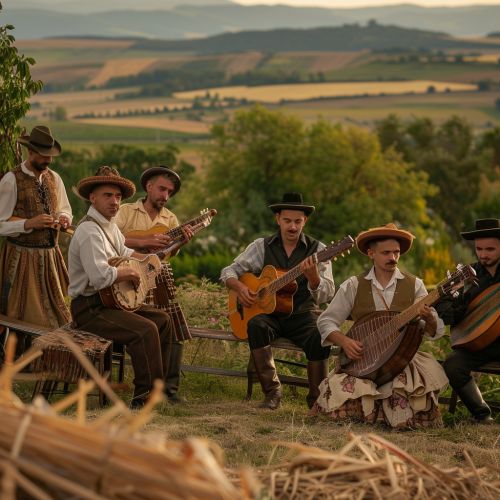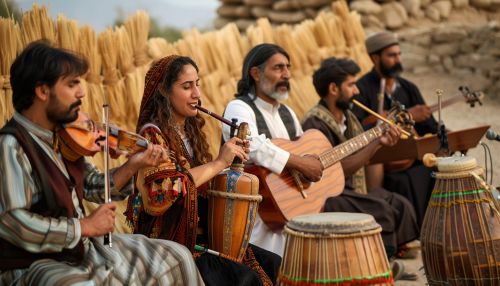Folk music
Origins and Development
Folk music, a genre deeply rooted in the cultural and social life of a community, has a rich and diverse history. Originating from the oral tradition, folk music has been passed down through generations, evolving and adapting to the changing times and cultures. The term "folk music" itself was coined in the 19th century, but the music it refers to is much older, often dating back hundreds of years read more.


The development of folk music is closely tied to the historical and social changes of the societies in which it was created. For instance, the Industrial Revolution in Europe led to significant changes in the structure of society, which in turn influenced the themes and styles of folk music. Similarly, the migration of people from rural to urban areas, and the subsequent cultural exchange, also had a profound impact on the evolution of folk music read more.
Characteristics
Folk music is characterized by its simplicity and directness, both in terms of its musical structure and its lyrics. The melodies are usually simple, often consisting of a single melodic line, with a limited range of pitches. The lyrics of folk songs often tell a story or convey a message, reflecting the experiences, beliefs, and values of the community from which they originate.
One of the defining characteristics of folk music is its reliance on traditional instruments. These can vary widely from culture to culture, but common examples include the guitar, fiddle, banjo, and harmonica in Western folk music, and the sitar, tabla, and sarod in Indian folk music read more.
Regional Variations
Folk music varies greatly from region to region, reflecting the unique cultures, histories, and landscapes of different parts of the world. For example, American folk music is influenced by a variety of sources, including Native American, African, and European traditions. It encompasses a wide range of styles, from the blues and gospel music of the South, to the country and bluegrass music of the Appalachians, to the folk rock and singer-songwriter traditions of the West Coast read more.
In contrast, British folk music is characterized by its strong connection to the land and the sea, reflecting the country's island geography and maritime history. It includes a variety of styles, from the ballads and sea shanties of England, to the jigs and reels of Scotland, to the harp music of Wales read more.
Folk Music Today
In the modern era, folk music continues to evolve and adapt, influenced by other musical genres and by the changing social and cultural landscape. The folk revival of the mid-20th century, for instance, saw a resurgence of interest in traditional folk music, and led to the creation of new forms of folk music, such as folk rock and folk punk read more.
Today, folk music remains a vibrant and important part of many cultures around the world. It continues to be a vehicle for storytelling and social commentary, and a way for communities to express their identity and values.
